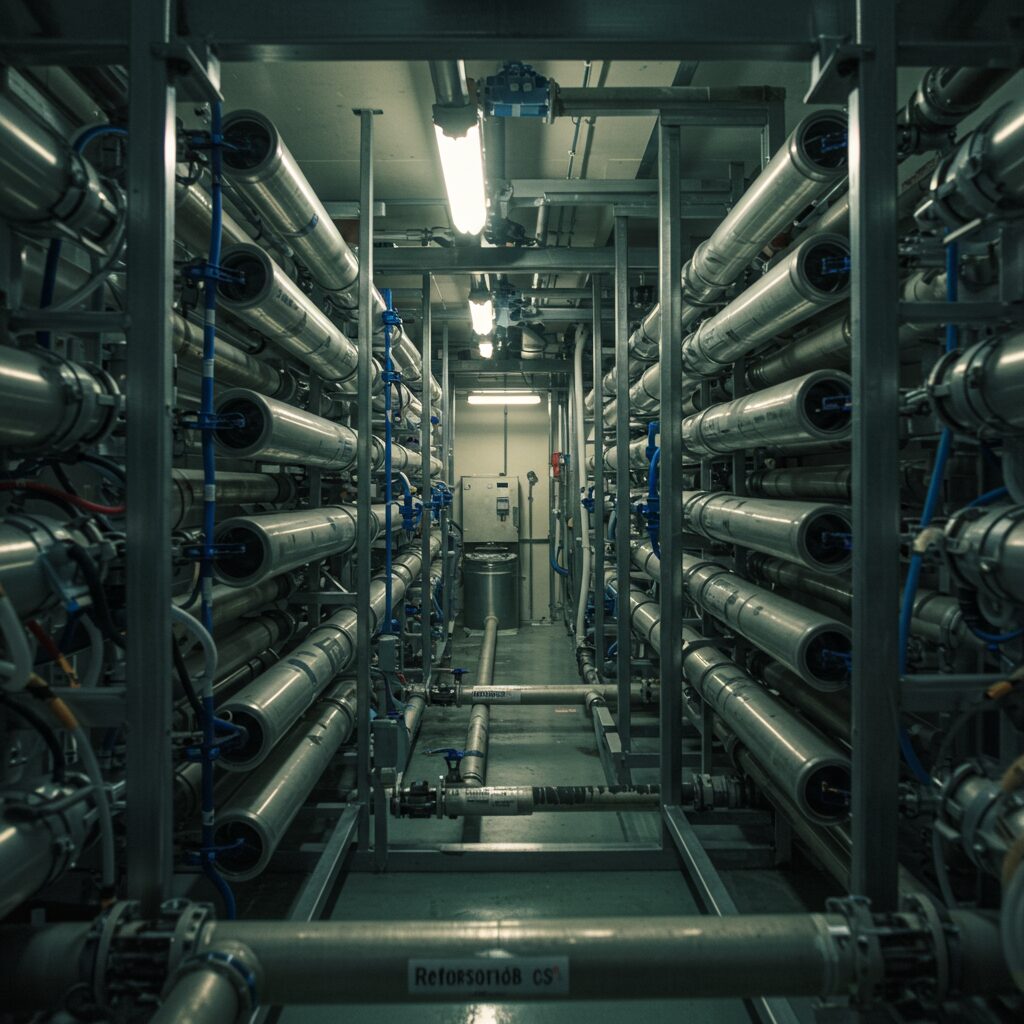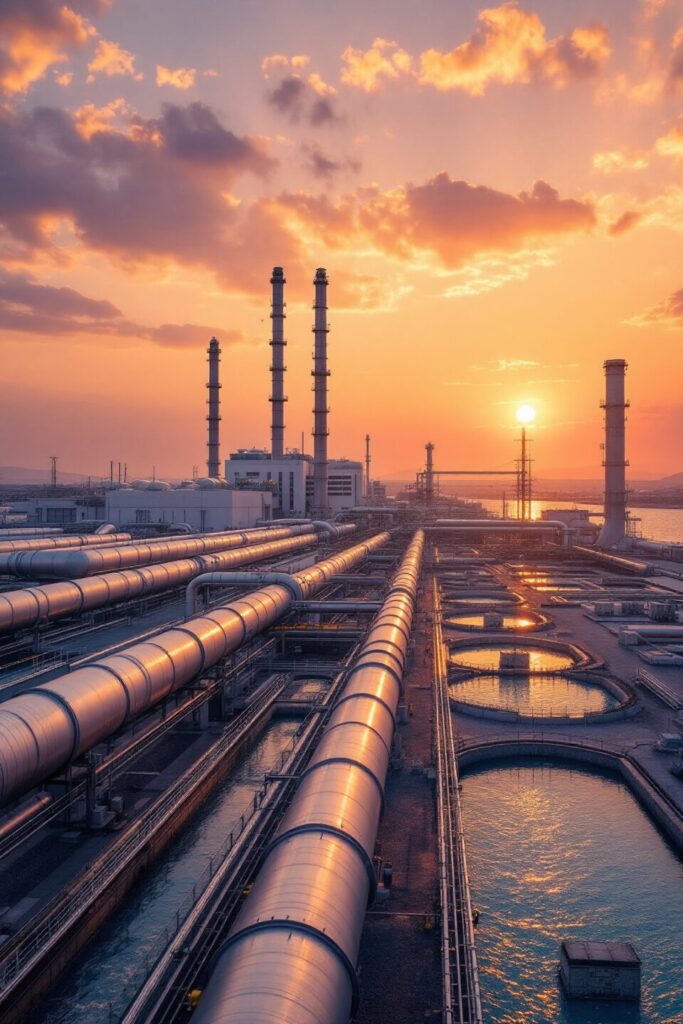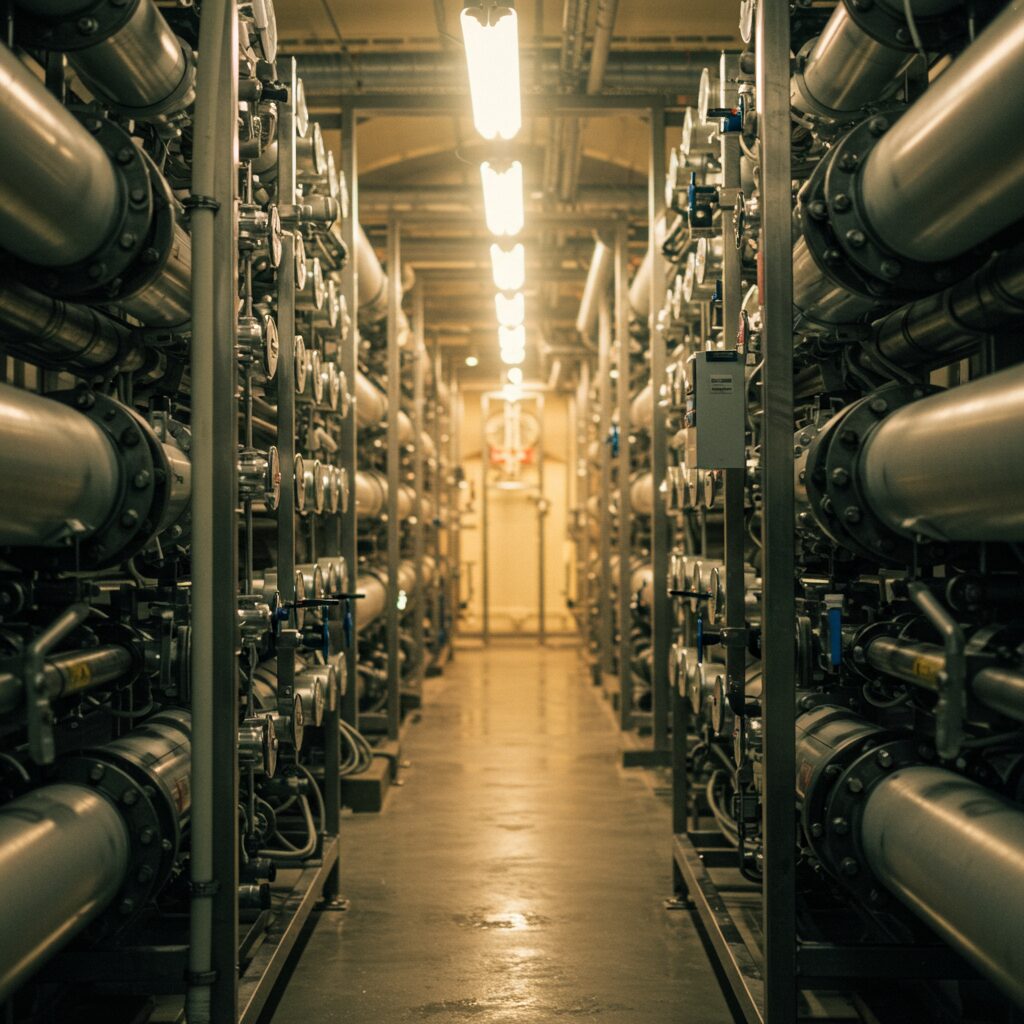AQUA-RNX
AQUA-RNX is a physical pre-treatment solution that acts before reverse osmosis, reducing the salt load of the water and enabling significant energy savings.
It does not replace existing technologies, but rather enhances them—helping to reduce membrane wear, extend system lifespan, optimize overall plant operation, and even capture atmospheric CO₂ during the process—all without the use of chemicals.

What is AQUA-RNX?
AQUA-RNX is a physical pre-treatment solution that acts before reverse osmosis, reducing the salt load of the water and enabling significant energy savings. It does not replace existing technologies, but rather enhances them—helping to reduce membrane wear, extend system lifespan, optimize overall plant operation, and even capture atmospheric CO₂ during the process—all without the use of chemicals.
Up to 75% energy savings
Extended membrane life and lower maintenance costs
Active CO₂ capture during the process
Reduced volume and concentration of brine discharge
Easy integration into existing or new plants, with no major modifications needed

AQUA-RNX – A New Chapter in Desalination
A physical pre-treatment solution designed to enhance existing desalination systems
Developed by RNX Water Systems in collaboration with PROMETE Srl, a spin-off of the National Research Council of Italy (CNR), AQUA-RNX applies an innovative physical process that not only facilitates desalination, but also promotes carbon uptake through a low-energy reaction.
The technology is protected by industrial patent no. 102022000020472.
AQUA-RNX integrates seamlessly into existing infrastructures, improving energy efficiency and environmental performance — without the use of chemical additives.


Want to Learn More?
We can provide an Executive Summary with additional insights into the benefits and applications of AQUA-RNX.
Access to more detailed technical or strategic information is available upon signing a non-disclosure agreement (NDA).
Contact us to request the document or explore partnership opportunities.
Project Status
The system is in the planning stage for laboratory validation, with a pilot installation to follow in collaboration with industry partners and a projected industrial rollout within the next 1–2 years.
📣 This opportunity is also listed on the Enterprise Europe Network (EEN) — the official EU platform for international cooperation in innovation.
👉 View the profile on EEN